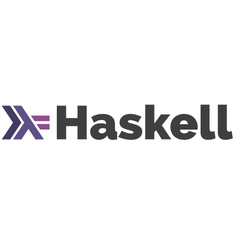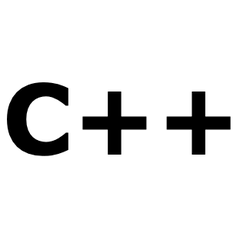
Haskell
Haskell is a statically typed programming language where every expression has a type determined at compile time, ensuring type conformity through function applications. Its pure functional nature eliminates side effects, using expressions instead of mutable statements. Haskell's type inference simplifies coding, allowing developers to focus on logic while benefiting from a robust ecosystem of packages.
Top Haskell Alternatives
C++
C++ offers a unique programming approach by treating components as objects, each with distinct properties and methods.
Haskell
Haskell is a statically typed programming language where every expression has a type determined at compile time, ensuring type conformity through function applications.
C++
C++ offers a unique programming approach by treating components as objects, each with distinct properties and methods.
BLooP
BLooP serves as an academic exploration of computational models, particularly reminiscent of early Random Access Machines.
HTML
HTML, or HyperText Markup Language, serves as the backbone for every website, structuring content across the web.
BLooP
BLooP serves as an academic exploration of computational models, particularly reminiscent of early Random Access Machines.
HTML
The latest iteration, HTML5, enhances this foundation with new markup and APIs, fostering compatibility for...
FLooP
FLooP is a recursive block-structured programming language created by Douglas...
Markdown
It employs a straightforward plain text formatting syntax, allowing users to create readable documents that...
FLooP
FLooP is a recursive block-structured programming language created by Douglas...
Markdown
It employs a straightforward plain text formatting syntax, allowing users to create readable documents that...
Julia
Its dynamic typing and multiple dispatch facilitate expressive programming...
Wolfram Language
With integrated high-level forms and advanced superfunctions, it encapsulates knowledge about algorithms and the world...
Julia
Its dynamic typing and multiple dispatch facilitate expressive programming...
Wolfram Language
With integrated high-level forms and advanced superfunctions, it encapsulates knowledge about algorithms and the world...
Top Haskell Features
- Static type system
- Type inference
- Pure functions
- No side effects
- Expressive type constructs
- Compile-time type checking
- High concurrency support
- Lightweight threading library
- Software transactional memory
- Lazy evaluation
- Code reusability
- Function composition
- Active open-source community
- Extensive package ecosystem
- High-performance garbage collection
- Asynchronous API for threads
- Control structures as functions
- Mathematical function definition
- Robust error prevention
- Documentation through type signatures






